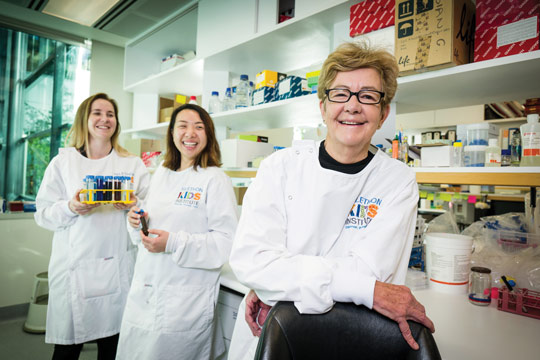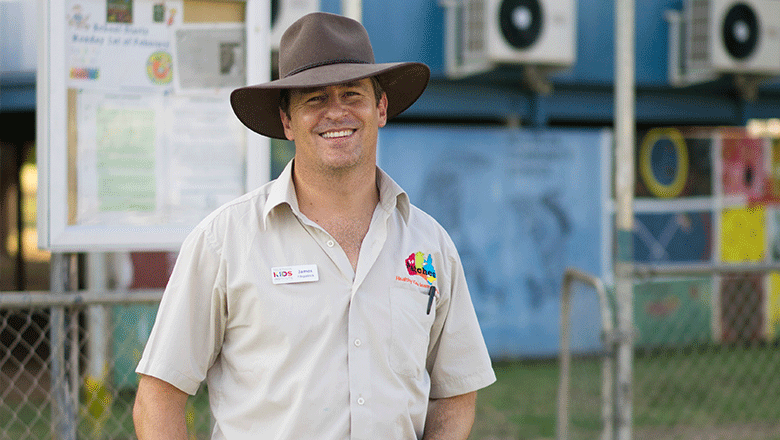Search
Showing results for "Au"
Research
A systematic review of chronobiology for neonatal care units: What we know and what we should considerA Cochrane 2016 review indicated cycled light might benefit neonatal health in hospital. We systematically reviewed chronobiological factors for neonatal health in hospital units, identifying 56 relevant studies on light-dark cycles, feeding, noise, massage therapy, rooming-in, incubators vs. cribs, neonatal units vs. homes, and time-of-day of birth. Empirical evidence for benefits from chronobiology is weaker than expected, including light.
Research
Respiratory and chest wall mechanics in very preterm infantsData on static compliance of the chest wall (Ccw) in preterm infants are scarce. We characterized the static compliance of the lung and Ccw to determine their relative contribution to static compliance of the respiratory system in very preterm infants at 36 wk postmenstrual age. We also aimed to investigate how these compliances were influenced by the presence of bronchopulmonary dysplasia and impacted breathing variables.
Research
Substance use among trans and gender diverse young people in Australia: Patterns, correlates and motivationsThere is a dire paucity of research into the burden, correlates and motives of substance use among trans young people in Australia.
Research
Lentiviral vector gene therapy and CFTR modulators show comparable effectiveness in cystic fibrosis rat airway modelsMutation-agnostic treatments such as airway gene therapy have the potential to treat any individual with cystic fibrosis (CF), irrespective of their CF transmembrane conductance regulator (CFTR) gene variants. The aim of this study was to employ two CF rat models, Phe508del and CFTR knockout to assess the comparative effectiveness of CFTR modulators and lentiviral vector-mediated gene therapy.
Research
Aboriginal and Torres Strait Islander Attitudes to Organ Donation in Central Australia: A Qualitative Pilot StudyOrgan transplantation is a well-established intervention but is reliant on the donation of organs and tissues, mostly from deceased donors. The proportion of Australians proceeding to organ donation (OD) has increased, but the proportion of Indigenous Australians proceeding remains two-thirds that of non-Indigenous Australians. We sought to explore perceived barriers and enablers for the involvement of Indigenous peoples in the OD process.
Research
"Fighting the pandemic!" Western Australian pharmacists' perspectives on COVID-19 vaccines: A qualitative studyIn Western Australia, community pharmacists are authorized to administer a range of vaccines without a prescription. Since mid-July 2021, pharmacists can also administer Coronavirus Disease 2019 (COVID-19) vaccines. Little is known about how pharmacists think and feel about giving and receiving COVID-19 vaccines and how they discuss it with patients.
Research
The NDIS at ten years: designing an equitable scheme for the next decadeJenny Downs BApplSci (physio) MSc PhD Head, Child Disability 08 6319 1763 Jenny.Downs@thekids.org.au Head, Child Disability Areas of research
Research
Protocol for spatial prediction of soil transmitted helminth prevalence in the Western Pacific region using a meta-analytical approachSoil transmitted helminth infections are estimated to impact 24% of the world's population and are responsible for chronic and debilitating morbidity. Disadvantaged communities are among the worst affected and are further marginalized as infection prevalence fuels the poverty cycle.
Research
Introducing the Cochrane Nutrition & Physical Activity Thematic GroupImproving nutrition and physical activity is a global health priority. Within Cochrane’s new production model, Thematic Groups (TG) with specialist content and review methods expertise have been established. The purpose of TGs is to support the development and dissemination of high-quality evidence syntheses on priority issues.
Research
Promoting mental well-being in Western Australia: Act Belong Commit® mental health promotion campaign partners’ perspectivesThe Act Belong Commit® mental health promotion campaign aims to improve population mental well-being. Based on a social-franchising model, partnerships are sought with organizations offering 'mentally healthy activities' that foster social connectedness and mental well-being. There are four categories of partner organizations sought: Site (government agencies and health services), Associate (organizations with state-wide or national services), Community (local, grass-roots community groups) and Schools.

News & Events
Healthcare Transition SupportHEALTHCARE TRANSITION STUDY Co-designing transition support: Phase 1 For young people with type 1 diabetes (T1D), growing up means moving from child

News & Events
Ten Day Continuous Glucose Monitoring study – now recruitingThe Children’s Diabetes Centre is now recruiting for a new continuous glucose monitoring study.
Our goal is to accelerate the dissemination and implementation of evidence-based models of care for children and young people living with Type 1 Diabetes.

News & Events
UV and Vitamin DResearchers at The Kids Research Institute Australia are continuing to hone in on the effects of ultraviolet radiation and vitamin D on the immune system.

News & Events
Community is tackling FAS in the Fitzroy ValleyAmong the highest rates of Fetal Alcohol Syndrome (FAS) worldwide have been reported by Aboriginal community leaders in the remote Fitzroy Valley.

News & Events
Fiona Stanley: Honorary Life MembershipWe are honoured to bestow upon Fiona an Honorary Life Membership of this Institute as a reflection of our great respect, love and thanks.
News & Events
Future Fund for Medical Research Brings Hope for Better Child HealthThe Kids Research Institute Australia has welcomed the Federal Government's commitment to a Medical Research Future Fund to improve the long term health of Australians.
